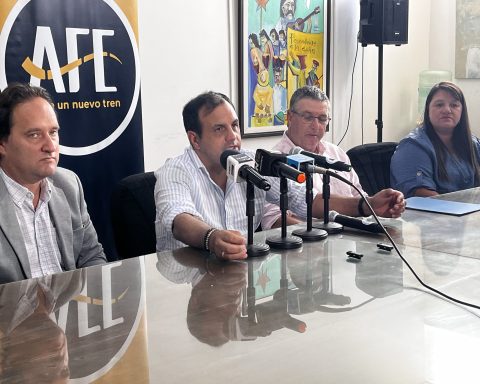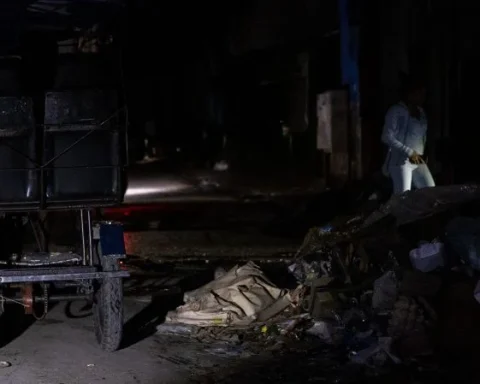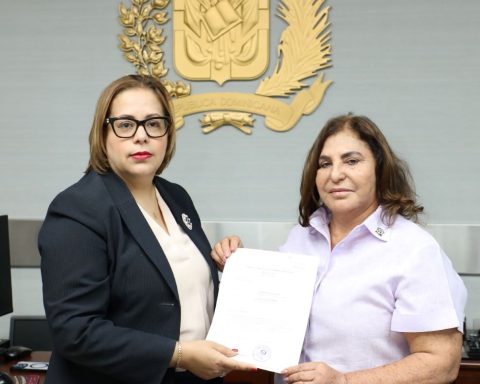He announced that he already has 125,000 chipped animals
Members of the Board of Directors of the Animal Welfare Institute, headed by its president, Marcia del Campo, together with the Executive Director, Marcela Delgado, and the Institute’s Legal Advisor, Alejandra Pacífico, attended this Wednesday the Responsible Ownership and Animal Welfare Commission of the Chamber of Deputies where they referred to two major issues. On the one hand, they provided an update on the development of the National Reproductive Control Program and announced that 125,000 animals have already been chipped in three years. They also provided information on the agreements that they develop with the municipalities for compliance with this Plan (castrations and identification by microchip) and on those that are implemented with other institutions and organizations for this same purpose.
The INBA authorities also referred to the Accountability article that establishes a rate to be set on the importation and domestic production of pet food, allocating 80% of the proceeds for the implementation of animal welfare policies. of the INBA; the remaining 20% will go to the National Honorary Zoonosis Commission.
“The deputies were informed that the Regulatory Decree of the corresponding Law is currently in the Ministry of Economy and Finance and that at the level of the Ministry of Livestock, Agriculture and Fisheries, work is being done to start up the registry of all companies that import or produce these foods,” said del Campo.
He evaluated the meeting as “very productive” and stressed that there was a “very good exchange”. “The deputies expressed their willingness to collaborate with the INBA to ensure the fulfillment of its objectives, even consulting us specifically about the ways in which they could do it, for which we are very grateful,” said the president of the Institute.
In this sense, the legislators were told of the need to achieve the commitment of all citizens regarding the responsible ownership of pets, a topic that has been prioritized in these first years of work, although the Institute must work in all species and activities involving animals.
The necessary involvement of all the institutions and organizations that make up the INBA Board of Directors was especially highlighted, pointing out that they work in a highly coordinated manner with the Ministry of the Interior. In relation to the departmental governments, although work is being done on the aforementioned castration and chipping agreements, the authorities highlighted the need for local governments to act in everything related to inspection and sanctions, particularly in the case of irresponsible possession. /animals on public roads.
Dr. Pacífico highlighted that there are several departments that have their own regulations on this subject, which are in force and therefore applicable.
“The regulations are there, the actors are there and the commitment was established when the INBA was created. So, what you have to do is act,” said del Campo. He added that from INBA they promote cross-sectional controls within the central administration.
As for the complaints received by INBA, according to the president, they have tripled since the Institute was created until today. When COTRYBA was in operation, an average of 150 complaints were received per month. This doubles when the INBA starts, going to 330 and 340, in 2021 and 2022, respectively, reaching 441 monthly complaints in the first quarter of 2023. Six out of ten complaints, that is, 60%, are associated with possession irresponsible. This data is of fundamental importance since irresponsible ownership, in addition to being a welfare problem for the animal involved, in the vast majority of cases can have negative consequences on social coexistence, livestock production and even on public health. A clear example of this is an animal loose on public roads, which reproduces uncontrollably and also has a high probability of causing traffic accidents, biting people and attacking production animals.
Prior to the appearance, the president announced that a special categorization for those complaints related to extreme physical violence towards animals had been created a year ago. “Considering the link that exists between violence against animals and violence among people themselves, we found it interesting to start creating this registry with the aim of having a large database, a statistic that Uruguay does not have today,” he said. she.

















